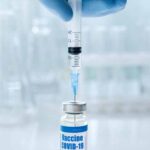FDA News Release—On April 16, saying that alternative monoclonal antibody therapies authorized to treat patients with COVID-19 remain available, the U.S. Food and Drug Administration revoked the emergency use authorization (EUA) that allowed for the investigational monoclonal antibody therapy bamlanivimab, when administered alone, to be used for the treatment of mild-to-moderate COVID-19 in adults and certain pediatric patients. Based on its ongoing analysis of emerging scientific data, specifically the sustained increase of SARS-CoV-2 viral variants that are resistant to bamlanivimab alone resulting in the increased risk for treatment failure, the FDA has determined the known and potential benefits of bamlanivimab, when administered alone, no longer outweigh the known and potential risks for its authorized use. Therefore, the agency determined that the criteria for issuance of an authorization are no longer met and has revoked the EUA.
On Nov. 9, 2020, based on the totality of scientific evidence available at the time, the FDA issued an EUA to Eli Lilly and Co. authorizing the emergency use of bamlanivimab alone for the treatment of mild to moderate COVID-19 in adults and pediatric patients (12 years of age and older weighing at least 40 kg) with positive results of direct SARS-CoV-2 viral testing, and who are at high risk for progressing to severe COVID-19 and/or hospitalization. Importantly, although the FDA is now revoking this EUA, alternative monoclonal antibody therapies remain available under EUA, including REGEN-COV (casirivimab and imdevimab, administered together), and bamlanivimab and etesevimab, administered together, for the same uses as previously authorized for bamlanivimab alone. The FDA believes that these alternative monoclonal antibody therapies remain appropriate to treat patients with COVID-19 when used in accordance with the authorized labeling based on information available at this time.
“While the risk-benefit assessment for using bamlanivimab alone is no longer favorable due to the increased frequency of resistant variants, other monoclonal antibody therapies authorized for emergency use remain appropriate treatment choices when used in accordance with the authorized labeling and can help keep high risk patients with COVID-19 out of the hospital,” said Patrizia Cavazzoni, MD, director of the FDA’s Center for Drug Evaluation and Research. “We urge the American public to seek out these therapies when needed while we continue to use the best data available to provide patients with safe and effective treatments during this pandemic.”
Monoclonal antibodies are laboratory-made proteins that mimic the immune system’s ability to fight off harmful pathogens such as viruses, like SARS-CoV-2. Like other infectious organisms, SARS-CoV-2 can mutate over time, resulting in genetic variation in the population of circulating viral strains.


